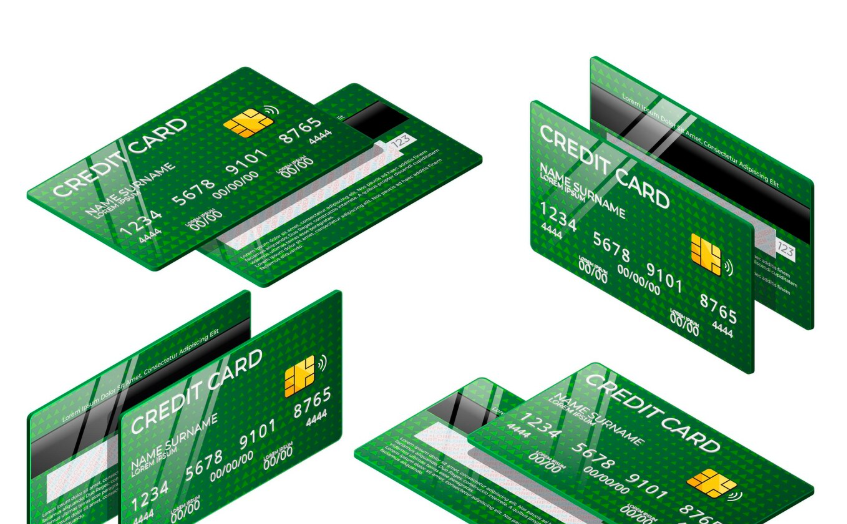In recent years, digital credit cards have emerged as a transformative force in the financial services sector. With advancements in technology and changing consumer preferences, these cards are quickly gaining popularity in the UK market. This article explores the rise of digital credit cards, their benefits, and the key factors contributing to their increasing adoption.
1. What are Digital Credit Cards?
Digital credit cards are virtual cards that exist only in digital form, allowing users to make online transactions or contactless payments via their smartphones, tablets, or other devices. Unlike traditional plastic credit cards, digital cards are typically issued instantly by banks or fintech companies through mobile apps, making them easy to obtain and use.
2. Key Drivers of Digital Credit Card Growth
Technological Advancements
The growth of digital credit cards has been fueled by several technological developments, including:
- Mobile Payment Systems: Services like Apple Pay, Google Pay, and Samsung Pay enable users to link their digital credit cards to their smartphones for quick and secure transactions.
- Contactless Payments: Digital credit cards often come with NFC (Near Field Communication) capabilities, enabling users to tap and pay without the need for a physical card.
Changing Consumer Preferences
- Convenience: Digital credit cards eliminate the need to carry a physical card, offering a more convenient and secure way to pay.
- Enhanced Security: With tokenization and encryption, digital cards offer superior protection compared to traditional cards, reducing the risk of fraud and identity theft.
- Instant Issuance: Digital credit cards can be issued immediately after approval, providing users with immediate access to their credit line.
3. Benefits of Digital Credit Cards
Convenience
Digital credit cards allow users to make payments quickly and effortlessly via smartphones or other devices. Whether online or in-store, digital cards provide a seamless payment experience.
Security
Digital credit cards typically use advanced security features such as:
- One-Time Use Numbers: These virtual numbers are valid for a single transaction, minimizing the risk of fraud.
- Two-Factor Authentication: Extra layers of security ensure that unauthorized users cannot access your account.
- Tokenization: Sensitive data, such as your credit card details, is replaced with a unique token, making it harder for hackers to access your financial information.
Easy Access and Management
With digital cards, users can:
- Instantly check balances and transactions: Mobile apps make it easy to keep track of your spending in real time.
- Set spending limits: Many digital credit cards allow you to set custom spending limits to better manage your finances.
- Freeze and unfreeze cards: Lost or stolen cards can be instantly frozen via the app to prevent unauthorized usage.
Cost-Effective
Some digital credit card providers offer lower fees or no annual fees compared to traditional credit cards, making them an affordable option for tech-savvy consumers.
4. Popular Digital Credit Card Providers in the UK
Several fintech companies and traditional banks in the UK have embraced the digital credit card trend, providing a range of features tailored to modern consumers. Some popular digital credit card providers include:
Monzo
Monzo, a leading UK-based challenger bank, offers a fully digital experience with virtual credit cards that can be used immediately for online purchases. Monzo also provides detailed spending analytics and budgeting tools.
Revolut
Revolut, another fintech giant, offers virtual credit cards that can be used for international transactions with no hidden fees. Revolut’s digital credit cards also feature a built-in “lock” function for added security.
Barclaycard
Barclaycard provides digital credit cards that integrate with mobile payment systems like Apple Pay and Google Pay. They offer a range of benefits, including cashback and travel rewards, for users who prefer digital solutions.
Curve
Curve offers a unique digital credit card that consolidates multiple credit cards into one card, which can be used digitally. Curve also provides added features like spending insights and cashback rewards.
5. The Future of Digital Credit Cards
Increased Integration with Wearables
The integration of digital cards with wearable devices like smartwatches is expected to rise, making payments even more convenient and contactless. Devices such as the Apple Watch and Fitbit already support mobile payment systems, and digital credit cards are likely to be a key part of this ecosystem.
Enhanced Personalization
Digital credit card providers are leveraging data analytics to offer more personalized services, including tailored rewards, offers, and spending alerts. As the technology continues to evolve, users can expect more targeted financial products.
Blockchain and Cryptocurrencies
In the future, blockchain technology and cryptocurrencies may play a role in digital credit cards. Some fintech companies are already experimenting with integrating crypto payments into their digital card offerings, allowing users to pay with digital currencies.
6. Challenges and Considerations
While digital credit cards offer many benefits, there are a few challenges to consider:
- Digital Divide: Not all consumers are comfortable using digital cards, especially older individuals or those without access to smartphones.
- Cybersecurity Concerns: Although digital cards offer better security, the rise in cybercrime means users must remain vigilant about phishing and data breaches.
- Limited Acceptance: Although mobile payments are becoming more widespread, some merchants may still not accept them, particularly in more remote or rural areas.
7. Conclusion
The rise of digital credit cards in the UK market is reshaping the way consumers manage their finances. With enhanced convenience, security, and instant access, digital cards offer a compelling alternative to traditional credit cards. As technology continues to advance and consumer preferences evolve, digital credit cards are expected to become even more popular in the years to come. However, users must weigh the benefits against potential challenges, such as the digital divide and cybersecurity risks, to make the most of this innovative financial tool.


